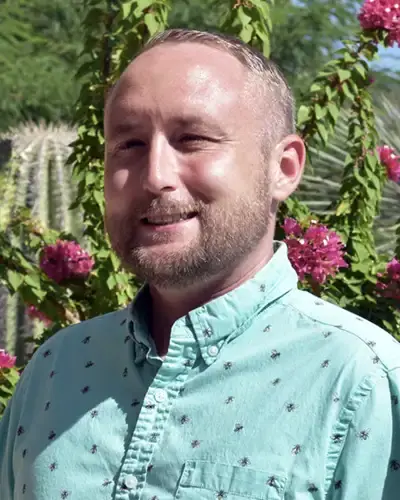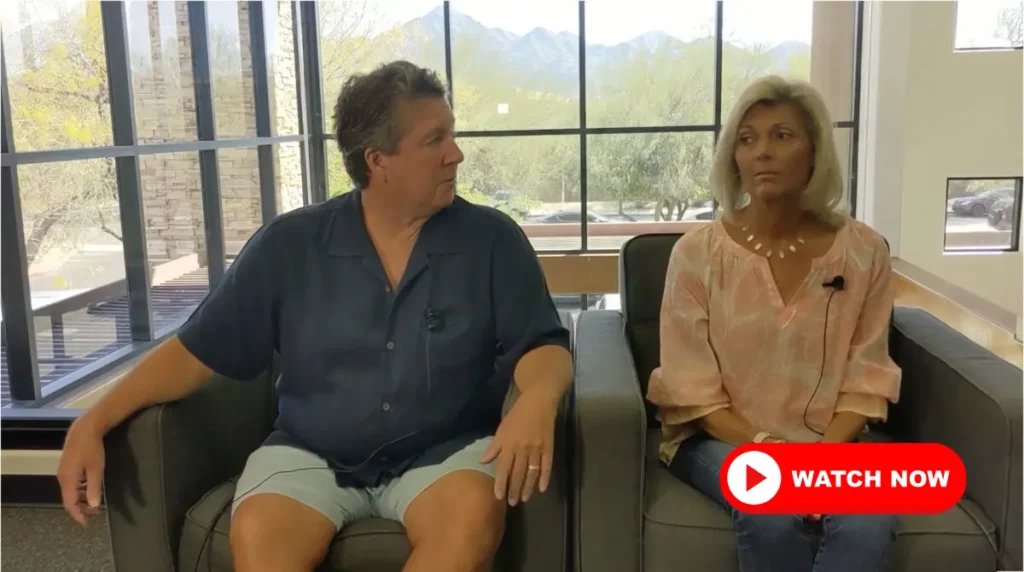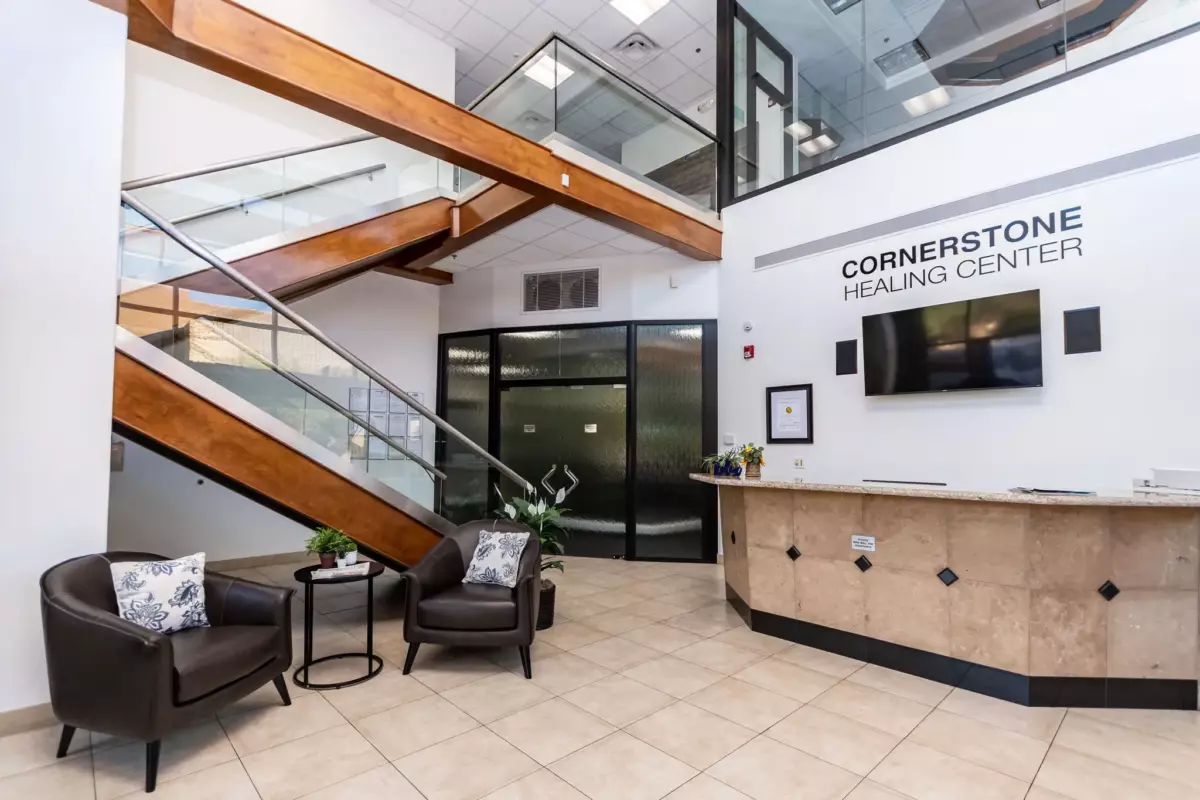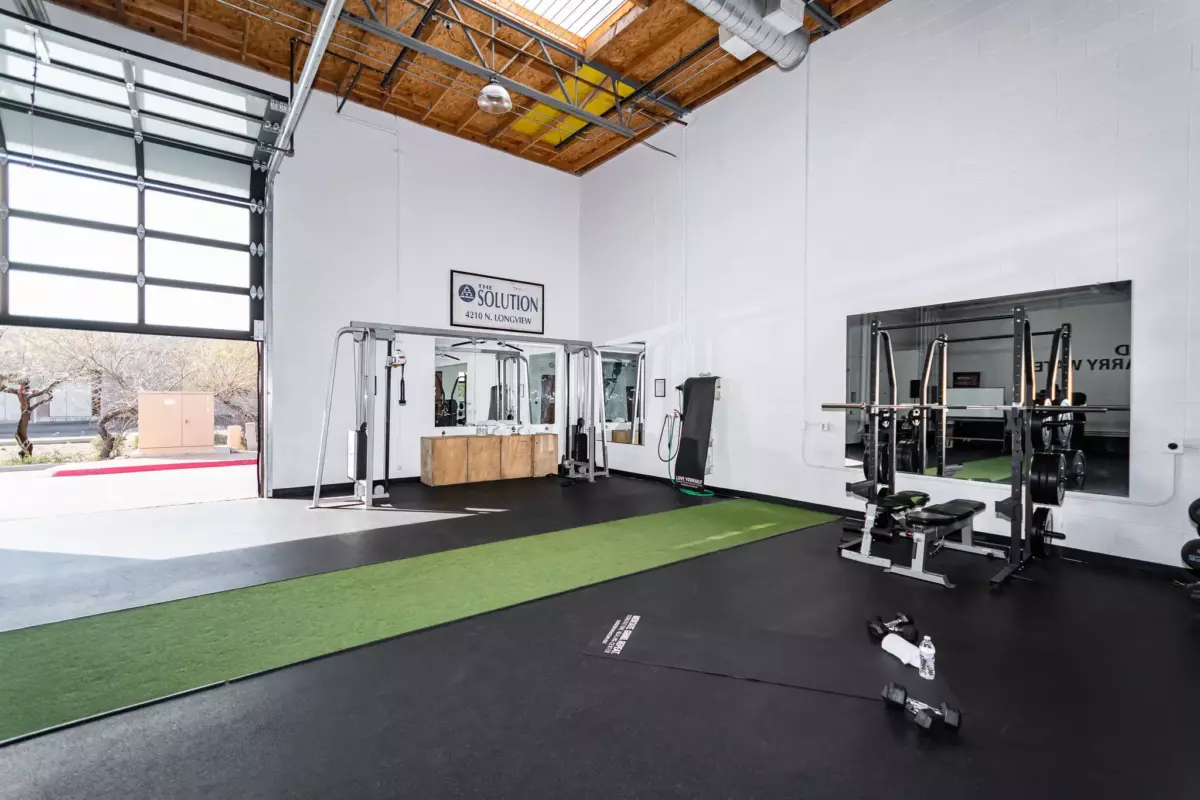Cornerstone
Arizona Opioid Rehab Center
We are a highly rated Arizona opioid drug rehab program with facilities in Scottsdale and Phoenix.
Arizona Residential Drug Treatment
Our residential treatment center for alcohol and drugs in Arizona offers comprehensive programs for individuals seeking to overcome addiction.
We utilize evidence-based therapies, personalized care plans, and a community-focused approach to provide each person with the highest level of support and guidance.
Our dedicated team of professionals is committed to fostering an atmosphere of healing and growth, making our Arizona facility a trusted haven for those on their recovery journey!
Jump to the following sections
View our addiction treatment locations
Understanding Opioid Addiction
Definition
Causes
Symptoms
Lorem ipsum dolor sit amet, consectetur adipiscing elit. Sed do eiusmod tempor incididunt ut labore et dolore magna aliqua. Ut enim ad minim veniam, quis nostrud exercitation ullamco laboris nisi ut aliquip ex ea commodo consequat. Duis aute irure dolor in reprehenderit in voluptate velit esse cillum dolore eu fugiat nulla pariatur. Excepteur sint occaecat cupidatat non proident, sunt in culpa qui officia deserunt mollit anim id est laborum.
Lorem ipsum dolor sit amet, consectetur adipiscing elit. Sed do eiusmod tempor incididunt ut labore et dolore magna aliqua. Ut enim ad minim veniam, quis nostrud exercitation ullamco laboris nisi ut aliquip ex ea commodo consequat. Duis aute irure dolor in reprehenderit in voluptate velit esse cillum dolore eu fugiat nulla pariatur. Excepteur sint occaecat cupidatat non proident, sunt in culpa qui officia deserunt mollit anim id est laborum. Duis aute irure dolor in reprehenderit in voluptate velit esse cillum dolore eu fugiat nulla pariatur. Excepteur sint occaecat cupidatat non proident, sunt in culpa qui officia deserunt mollit anim id est laborum.
Lorem ipsum dolor sit amet, consectetur adipiscing elit. Sed do eiusmod tempor incididunt ut labore et dolore magna aliqua. Ut enim ad minim veniam, quis nostrud exercitation ullamco laboris nisi ut aliquip ex ea commodo consequat. Duis aute irure dolor in reprehenderit in voluptate velit esse cillum dolore eu fugiat nulla pariatur. Excepteur sint occaecat cupidatat non proident, sunt in culpa qui officia deserunt mollit anim id est laborum.
About our Arizona Alcohol Rehab Center
Cornerstone Healing Center of Arizona is an alcohol treatment center that embodies the transformative journey of recovery from alcohol addiction.
At the heart of our philosophy is a deep belief in the profound impact of human connection, character development, and the embrace of change in overcoming alcohol addiction. This belief system has shaped our approach to alcohol treatment, making it a unique and practical experience for those seeking help.
We operate on principles that have proven successful in battling alcohol use disorder. Our professional and deeply personal commitment contributes to our reputation as a reliable and compassionate alcohol treatment center.
We at Cornerstone offer a holistic approach to rehab for drinking, understanding that true healing goes beyond physical sobriety. It involves cultivating resilience, accountability, and the strength to choose challenging paths towards long-lasting recovery.
We emphasize giving back, recognizing that recovery is also about contributing positively to the community and others’ lives.
Our goal is to guide individuals through their journey to sobriety, equipping them with the tools and support necessary for a sustainable recovery. Let us be your dedicated allies in your fight against alcoholism, offering a path to renewed hope and a healthier life.
Patrick & Nicole - Family Testimonial
Listen to the testimonial of Patrick and Nicole, Parents of a Cornerstone Alumnus who spent time at one of our Arizona alcohol recovery centers.
Patrick and Nicole have witnessed first-hand the transformative impact of Cornerstone Healing Center. Their son, Cole, was grappling with the debilitating grip of alcoholism, his life seemingly at the mercy of this relentless disorder. However, from the moment Cole stepped into our Scottsdale alcohol rehab center, his life began to change in profound and unimaginable ways.
Anxiety Disorder Treatments

Residential programs for anxiety disorders offer immersive, 24/7 therapy combining psychotherapy, medication, and holistic approaches. The structured environment helps address underlying issues and equips individuals with coping skills, fostering long-term anxiety management.

Outpatient programs for anxiety disorders offer flexible, part-time therapy. They provide psychotherapy, medication management, and support for individuals to address anxiety while maintaining their daily routines. This helps individuals manage their anxiety while balancing their outside life.

Medication management is an approach for treating anxiety disorders, using drugs like SSRIs or benzodiazepines to regulate neurotransmitters and alleviate symptoms. Regular monitoring ensures proper dosage and effectiveness, making medication a valuable part of comprehensive treatment.
Meet Our Clinical Team

Clinical Director of Scottsdale Program
Lionel is a Licensed Independent Substance Abuse Counselor (LISAC) with over 4 years at Cornerstone. Passionate about helping those with addiction and mental health struggles, and he has trained as an EMDR therapist, adopting a trauma-informed approach to find and treat underlying root causes with empathy.

Clinical Director of Phoenix Program
Nate began his recovery journey in 2010 and earned a Master’s in Social Work from ASU. He’s been in the Behavioral Health field since 2013. Specializing in CBT, DBT, and grief, Nate is now the Clinical Director of our Phoenix program, underlined by his passion for helping others who struggled with substance abuse issues as he did.
Frequently Asked Questions (FAQ)
Get answers to the most commonly asked questions about opioid drug rehab
Both of our current opioid drug rehab facilities are located in Scottsdale, Arizona. Visit our Arizona page to learn more about our rehab programs and their locations.
The amenities offered at our opioid drug rehab facility are unmatched in the industry. From 24-hour nursing care in our residential program to aftercare programs, our staff and facilities provide clients with the support they need to recover from opioid addiction. We offer on-site medical and psychiatric evaluations, group therapy sessions, individualized treatment plans, spiritual guidance, family counseling and more.
We allow our clients to have access to their smartphones after an initial period (usually about a week).
Opioids are drugs that act on opioid receptors in the brain and body to produce analgesia (pain relief) and euphoria.
They are used medically to treat pain, such as that caused by cancer, trauma, and surgery, and are also used recreationally to produce feelings of relaxation and pleasure.
Opioids bind to opioid receptors in the brain and body, triggering the release of neurotransmitters like dopamine, which produce feelings of pleasure and relaxation.
Opioids also reduce pain perception, making them effective for treating many types of pain. Common opioid medications include oxycodone, hydrocodone, codeine, morphine, and fentanyl.
Opioids can have serious risks and side effects, including physical dependence and addiction. Long-term use of opioids can lead to tolerance, meaning that higher drug doses are needed to achieve the same effects.
This can increase the risk of overdose, a life-threatening medical emergency.
Opioid use also carries a risk of respiratory depression, meaning that breathing can slow or even stop. Other risks associated with opioid use include constipation, nausea, sedation, and sleepiness.
A list of illicit opioids:
- Heroin
- Carfentanil
- Fentanyl analogues
- Acetylfentanyl
- Butyrfentanyl
- Furanylfentanyl
- U-47700
- Despropionyl fentanyl-3
- Methylfentanyl-4
- Methylfentanyl
- Alpha-methylfentanyl
- Beta-hydroxyfentanyl
A list of regular opioids:
- Oxycodone (OxyContin, Percocet)
- Hydrocodone (Vicodin, Lortab)
- Codeine
- Morphine
- Fentanyl
- Methadone
- Buprenorphine
- Hydromorphone (Dilaudid)
- Oxymorphone (Opana)
- Meperidine (Demerol)
- Tramadol (Ultram)
- Tapentadol (Nucynta)
- Levorphanol (Levo-Dromoran)
Opioid use can have a profound and lasting effect on the brain. Opioids are a type of drug that binds to opioid receptors in the brain and body, resulting in a variety of effects.
The primary effect of opioid use is to reduce the perception of pain. Opioids bind to opioid receptors in the brain and block or reduce the transmission of pain signals. This can lead to relief from pain and a feeling of euphoria.
However, this can also lead to a decrease in the effectiveness of the body’s natural pain relief response, known as tolerance. This means that higher doses of opioids are needed to achieve the same level of pain relief.
Opioids also affect the brain’s reward center, releasing a surge of dopamine, a neurotransmitter associated with pleasure and reward. This can lead to a feeling of euphoria and can be highly addictive.
Long-term opioid use can have several detrimental effects on the brain. Chronic use can lead to changes in the brain’s reward system, making it more difficult to experience pleasure and reward without the drug. It can also lead to changes in the brain’s memory and decision-making centers, making it more difficult to make sound decisions.
Opioid use can also lead to physical changes in the brain. Prolonged opioid use can decrease the number of neurons in the brain, resulting in memory and cognitive deficits. It can also lead to changes in the brain’s structure, resulting in changes in behavior.
Finally, opioid use can lead to changes in the brain’s reward system, making it more difficult to experience pleasure and reward without the drug. This can lead to an increased risk of addiction and compulsive behavior.
In summary, opioid use can have a profound and lasting effect on the brain. It can lead to physical changes in the brain, changes in the reward system, and changes in behavior. It can also lead to addiction and compulsive behavior, making quitting difficult.
Opioid addiction is a serious and life-threatening condition that can have a significant impact on someone’s life, as well as the lives of those around them. Some of the most common signs and symptoms of opioid addiction include:
Physical signs:
- Increased tolerance, which means needing more of the drug to get the same effect
- Changes in sleep patterns, such as difficulty falling asleep or staying asleep
- Unexplained weight loss
- Nausea and vomiting
- Constipation
- Loss of appetite
- Sweating
- Slowed breathing
- Itching
Behavioral signs:
- Neglecting responsibilities, such as work, school, and family obligations
- Unexplained financial problems, such as borrowing or stealing money
- Engaging in risky activities, such as unprotected sex or driving under the influence
- Isolation and withdrawal from family and friends
- Seeking out multiple doctors in order to get more prescriptions
Psychological signs:
- Intense cravings for opioids
- Feelings of depression or anxiety
- Mood swings
- Impaired judgment or decision-making
Opioid withdrawals are an extremely difficult and uncomfortable experience for those going through it.
People who are dependent on opiates often experience a variety of symptoms when they stop taking the drug, including anxiety, depression, irritability, restlessness, insomnia, fatigue, sweating, nausea, vomiting, diarrhea, abdominal cramps, dilated pupils, goosebumps, muscle aches and pains, and even fever.
Opioid withdrawal can feel like a severe case of the flu and is often accompanied by intense cravings for the drug.
The intensity of the withdrawal symptoms will depend on the type of opioids used and the length of time the person has been using.
For those who have been using opioids for a long period, the withdrawal symptoms can be much more severe and can last for weeks or even months.
The first few days of opioid withdrawal are usually the most difficult. During this time, the person can experience strong cravings, intense physical discomfort, and intense psychological distress.
It is important to note that opioid withdrawal is not life-threatening but can be extremely uncomfortable and difficult to cope with.
It is important to seek professional help when going through opioid withdrawal. Professional treatment programs can provide medications to help reduce withdrawal symptoms and support and guidance during this difficult time. With the right help and support, those going through opioid withdrawal can get through the process and begin the path to a healthier life.
The most common and best form of treatment for opioid dependence is psychosocial interventions. Psychosocial interventions include individual counseling, group counseling, and peer support programs.
During individual counseling, a patient meets one-on-one with a trained therapist or counselor to discuss their addiction and any underlying mental health issues. This type of therapy is often used to explore the root causes of the addiction and to develop a plan for managing cravings and triggers.
Group counseling is similar to individual counseling, except it allows patients to learn from each other and to share experiences.
Peer support programs are also a common form of treatment for opioid dependence. These programs provide a safe and supportive environment for patients to talk about their struggles and successes.
They also offer a safe space for patients to socialize and connect with other people in recovery. Other psychosocial interventions may include cognitive behavioral therapy, motivational interviewing, and contingency management.
Cognitive behavioral therapy helps patients to identify and change unhealthy patterns of thinking and behavior related to their addiction.
Motivational interviewing helps patients to identify and work towards their goals, while contingency management helps to motivate patients to abstain from drug use by providing incentives.
In addition to psychosocial interventions, lifestyle changes are an important part of treatment for opioid dependence. This includes activities like exercise, healthy eating, and stress management.
Exercise can help to reduce cravings and improve mood, while healthy eating can improve physical and mental health. Stress management strategies such as yoga and meditation can help to reduce anxiety and cravings.
Finally, lifestyle changes include attending support groups and engaging in hobbies that bring joy and relaxation.
Treatment for opioid dependence is most successful when psychosocial interventions and lifestyle changes are used. This comprehensive treatment plan can help patients reach their recovery goals and maintain long-term sobriety.
The amount of time spent in addiction treatment for opioid addiction varies from person to person.
The length of an opioid rehab program varies widely depending on the individual’s needs and circumstances.
Generally, short-term programs are considered to be fewer than 30 days, while long-term programs go beyond 90 days.
In between these extremes, there are many other programs that last anywhere from 2 weeks to 6 months.
No matter what the duration is, all rehabilitation processes work best when physical and emotional needs are addressed, expert guidance given, and comprehensive aftercare plans offered.
It is important to find a program that will provide an appropriate length of time in rehab to ensure the most successful outcome.
When a loved one is struggling with opioid addiction and doesn’t want help, it can be challenging and heartbreaking.
It’s important to remember that nobody can force someone into treatment, but as a family member or friend, you may still be able to support them in their recovery journey.
First, try having an open and honest conversation about their addiction and how it impacts them – physically, mentally, emotionally, and spiritually.
Make sure your loved one knows you are there for them no matter what happens. Avoid being judgmental or aggressive; focus on listening without trying to fix the problem or provide solutions.
It may also be helpful to research treatment options together so that your loved one can see all the possibilities available.
You could check out local rehab centers and online programs if they prefer something more private or convenient.
If your loved one needs more convincing, you could also seek advice from a professional such as an addiction therapist or doctor specializing in addiction medicine.
In addition, consider attending support groups such as Narcotics Anonymous (NA) meetings together so your loved one doesn’t feel alone in their battle against opioid addiction; these meetings provide a safe and supportive environment for people to share their stories and connect with others who are in similar situations.
Lastly, remember to take care of yourself. Caring for someone with an opioid addiction can be emotionally draining.
Make sure you’re taking time for yourself and get mental health counseling or attend support groups like Alanon or Naranon.
Sources
- Cornerstone Healing Center, www.cornerstonehealingcenter.com
- Cornerstone Healing Center, www.cornerstonehealingcenter.com
- Cornerstone Healing Center, www.cornerstonehealingcenter.com
- Cornerstone Healing Center, www.cornerstonehealingcenter.com
- Cornerstone Healing Center, www.cornerstonehealingcenter.com
- Cornerstone Healing Center, www.cornerstonehealingcenter.com
CLINICALLY REVIEWED

Lionel Estrada, LISAC
CLINICAL DIRECTOR
Lionel, a Licensed Independent Substance Abuse Counselor (LISAC) with over 4 years at Cornerstone, specializes in addiction and mental health. Trained in EMDR therapy, he employs a trauma-informed, empathetic approach to address underlying causes of these issues.
- Read our Editorial Policy
Still have questions about treatment?
Our admissions specialists are here to explain the process, answer any questions you may have, and ensure you’re getting the help you need to live a healthy life free from addiction.























